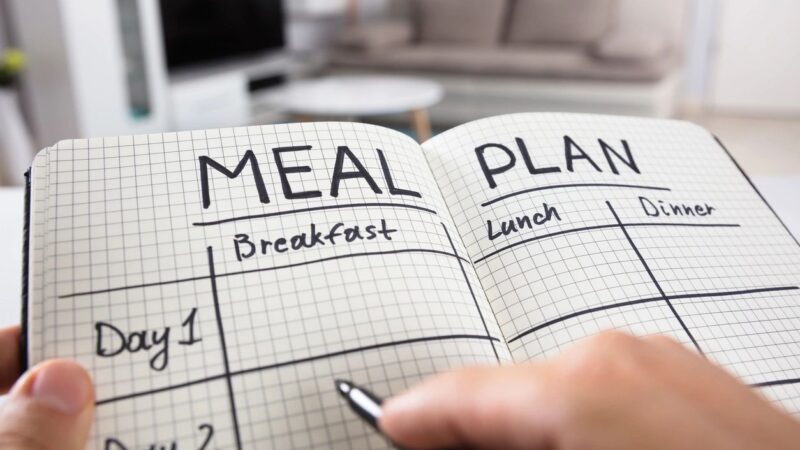Top 5 Factors To Consider Before You Apply For A Mortgage Loan

Buying a home can be an exciting time for you. Finding a good mortgage loan, however, can be a more stressful situation. Your mortgage loan can last up to 30 years, so finding the best one available for you is of great importance. That’s why, when you’re on the hunt for a mortgage loan, you should be asking questions that will lead you to the best loan option for you.
See reference here https://taxfyle.com/blog/does-
Knowing what questions to ask your financial institution can be very helpful in the mortgage process. They can help you become as knowledgeable about the mortgage loan process as possible, in turn, helping you make a well-informed decision. You can reach out to experienced local lenders, such as Central Willamette Credit Union, to find the best rates and get the answers you’re looking for.
If you’ve been asking yourself questions like, “Are credit unions more lenient with mortgage loans?” or, “How can I grab the best rate from my financial institution?” we’ve got the answers for you.
Here are a few questions that you can ask when you’re searching for the best mortgage loan.
How much money am I able to borrow?
Before you get started, you may want to introduce a budget of some kind. That’ll help you avoid disappointments. Your home search should only include homes that are realistic for you to buy, and knowing how much you’re able to borrow can help your search stay within your budget. When you ask a lender what you will be able to afford when buying a home, they can analyze things like your credit and income to give you a realistic number. Your budget will make sure that you’re able to afford monthly payments on your home, while also maintaining other bills and living expenses.
Which loan is best for me?
There are a variety of loan types to choose from and having a good idea of which type of loan you’d like can help you ask more direct questions when you meet with lenders. Variable-rate loans and fixed-rate loans are two of the most popular types of loans out there. Learning more about each one can help you make a more informed loan decision.
A fixed-rate loan offers borrowers an interest rate at the beginning of their term that will remain the same for the entirety of the loan. That means this rate won’t change, no matter how the market interest rates change over the time you’re paying off the loan. Your payment will also remain the same for the full term of the loan, which can provide borrowers with a sense of security, knowing that if the market rates spike, their rates will be safe at the agreed-upon percentage. The downside of this option is if you’re borrowing at a time when the market rates are higher, you won’t be able to benefit from the market rates going down later.

An adjustable-rate loan differs from a fixed-rate loan in that the rate will change as the market rate changes. This option gives you the opportunity to benefit from the times when the market rates drop, but it also may subject you to higher rates from time to time.
What are the benefits of having a mortgage with a credit union?
If you’ve been looking into where to apply for a mortgage, you’ve probably considered credit unions. Some people believe that credit unions will be more lenient with mortgage loans, which is absolutely true! Mortgage loans are more accessible because credit unions create a relationship with their members and because credit unions aren’t as focused on profits as other financial institutions. Credit unions are known to be more lenient when it comes to your credit score as well, which typically plays a large part in your loan approval, the amount of the loan, and your interest rate.
There are many benefits that come with opting for a credit union, including having easier access to a mortgage loan. When you go with a credit union like Central Willamette, you also have access to educational tools and calculators that can give you a better understanding of how you’re using and spending your money. You’ll also have easier access to business accounts, savings accounts, and other borrowing options. Not too bad if you ask us!
How much money should I put down?
The amount of money needed for the down payment can make all the difference when it comes to getting the house of your dreams and in paying the least amount of interest. In the past, putting 20% down on a home was considered the standard, but as time goes by, lenders have become more lenient with the required percentage, allowing many people to purchase a home who wouldn’t have been able to previously.
Depending on your financial situation, you may be able to put as low as 3% down on your home. This makes it easier to secure a loan, but it can also come with some downsides. The less you put down on a home, the more interest it’s subject to later on. When you put less than 20% down on a home, you are also often expected to pay mortgage insurance. Asking how much money you will need to put down to secure your loan can help you to assess if you’re ready to begin the home-buying process or if you’re capable of getting a loan with the financial institution you’re applying with.
What will my interest rate be?
Asking what your interest rates will be is always a good idea when you’re looking for a mortgage loan. This number is going to let you know how much interest you’ll be paying on the loan over the term that you and the lender decide on.

If you’re shopping around for a mortgage loan, you’ll be able to get a good idea of what a normal interest rate is during the time you’re looking to borrow. The lower your interest rate is the better, so be sure to ask for a quote upfront.





